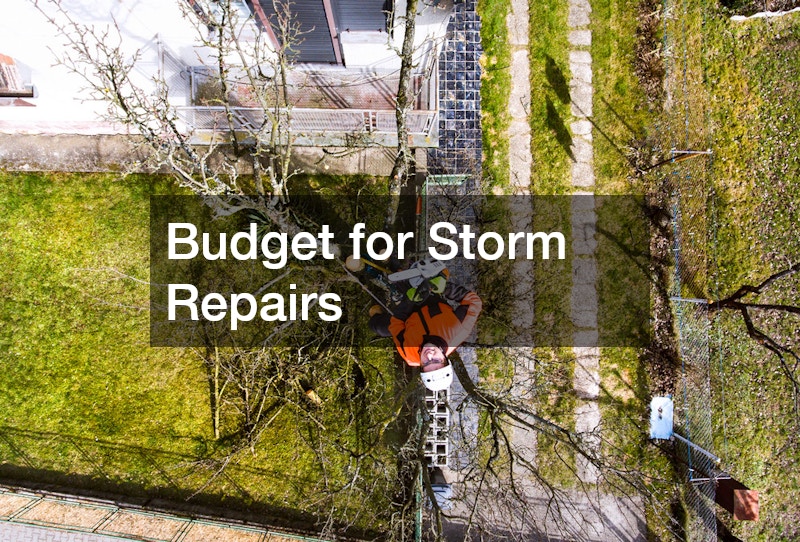Whether you’re just starting out on your financial journey or looking to refine your budgeting skills, becoming a better saver is an essential goal. This article will provide you with comprehensive tips on how to manage various aspects of adult life efficiently. From urgent care and local movers to duct cleaning services and more, we’ve got you covered, ensuring you allocate your resources wisely and effectively.
Achieving financial stability is a goal for many adults, and one of the best ways to reach it is by becoming a smarter saver. Managing your money doesn’t have to be overwhelming when you have practical budgeting tips to guide you. From managing health care expenses to home maintenance, every aspect of your life can be budgeted for effectively. This article offers valuable strategies to help you allocate your resources wisely and become better financially, ensuring you’re prepared for whatever life throws your way.
No matter your stage in life, becoming a smarter saver is key to achieving financial freedom. Whether you’re managing daily expenses or saving for larger financial goals, a well-planned budget can help you stay on track. In this guide, we’ll explore effective budgeting strategies across various areas of life, including health care, transportation, and home maintenance. By following these tips, you can become a better saver and gain control over your financial future. Let’s dive into these practical budgeting tips to help you become a smarter saver and achieve your financial goals.
1. Prioritize Health Care

Health care should be one of the top priorities in your budgeting strategy. Ensuring that you have funds set aside for regular check-ups and emergencies is crucial for your overall well-being. Consider setting aside a portion of your budget specifically for health care expenses, including visits to urgent care facilities. By doing so, you can avoid the financial stress that comes with unexpected medical bills, making you a smarter saver in the long run.
Urgent care centers often provide a more cost-effective alternative to emergency room visits. These facilities handle non-life-threatening conditions, such as minor injuries and illnesses, at a fraction of the cost. Utilizing urgent care services can help you manage your health care budget better without compromising the quality of care you receive.
Moreover, having an insurance plan that covers urgent care visits can further reduce your out-of-pocket expenses. Evaluate the options available to you and select a plan that balances coverage and cost. This proactive approach to health care budgeting will make you a better saver and ensure that you’re prepared for any medical situation.
2. Find Easy Transportation Alternatives
Transportation is another significant area where you can save money by making better choices. One easy alternative is to use electric scooters for short commutes. These eco-friendly options are not only cost-effective but also reduce your carbon footprint.
Electric scooters are convenient for city dwellers who need to travel short distances. With lower maintenance costs compared to cars, they can be an excellent addition to your transportation budget. By incorporating electric scooters into your daily routine, you become a smarter saver by reducing fuel and maintenance expenses.
In addition to electric scooters, consider other alternatives like public transportation, carpooling, or biking. Each of these options can significantly lower your transportation costs, freeing up money for other essential areas of your budget. By exploring and utilizing these alternatives, you maximize your savings potential.
3. Stay on Track With Important Life Plans
Planning for the future is an essential aspect of effective budgeting. Estate plans, for instance, ensure that your assets are distributed according to your wishes upon your passing. Allocating funds for legal documentation and consultations is a prudent way to safeguard your financial future.
Estate plans may include wills, trusts, and power of attorney documents. These legal tools require proper funding to ensure they are accurately drafted and executed. By budgeting for estate plans, you are making a long-term investment in your financial security, further solidifying your status as a better saver.
Additionally, discussing your estate plans with family members can provide clarity and reduce potential conflicts. Transparent communication about your intentions establishes peace of mind for you and your loved ones. By integrating estate planning into your budget, you set the stage for a secure financial future.
4. Budget for Storm Repairs

Unexpected weather events can wreak havoc on your home, requiring immediate and costly repairs. Having a budget allocated for storm-related damages ensures that you can handle these expenses without jeopardizing your overall financial health. One essential service to consider is hiring a local roofer to address roof damage promptly.
Local roofers can offer quick and efficient repair services, minimizing the extent of the damage and protecting your home from further issues. By budgeting for storm repairs ahead of time, you can avoid financial strain and be better prepared to address these emergencies. A proactive approach to home maintenance makes you a smarter saver over time.
Furthermore, maintaining a relationship with a reputable local roofer can provide you with priority service when you need it the most. Regular inspections and timely repairs can extend the life of your roof, saving you money in the long run. By anticipating and budgeting for these needs, you can be a better saver and keep your home in top condition.
5. Care for Your Home
Home maintenance is a crucial aspect of budgeting that can save you significant amounts of money in the long run. Regular upkeep, such as duct cleaning services, ensures that your home systems operate efficiently. By allocating funds for essential maintenance tasks, you can prevent costly repairs and reduce utility bills.
Duct cleaning services are vital for maintaining good air quality and improving the efficiency of your heating and cooling systems. Over time, ducts can accumulate dust, allergens, and other debris, impacting your health and energy consumption. Investing in professional duct cleaning services can enhance your home’s environment and save you money on utility costs, making you a smarter saver.
Moreover, creating a home maintenance schedule can help you stay on top of other essential tasks, such as plumbing and electrical checks. Regular inspections and timely interventions can prevent minor issues from evolving into expensive repairs. By prioritizing home maintenance in your budget, you protect your investment and optimize your savings.
6. Factor in Home Remodeling Projects

Home remodeling projects can be a significant investment, but they also add value to your property. When planning your budget, it’s essential to factor in the costs of renovations, such as updating kitchen cabinets. By preparing financially for these projects, you ensure that you can enhance your home without falling into debt.
Updating kitchen cabinets can transform the look and functionality of your kitchen, making it a popular remodeling project. By budgeting for high-quality materials and professional installation, you can achieve a lasting upgrade that increases your home’s value. A strategic approach to home remodeling expenses makes you a better saver.
Additionally, consider the long-term benefits of your remodeling projects. Improvements like energy-efficient appliances and fixtures can reduce utility costs and contribute to future savings. By carefully planning and budgeting for these enhancements, you maximize the return on your investment and bolster your financial stability.
7. Consider Self Care
Self-care is an important aspect of overall well-being that should not be overlooked in your budget. Allocating funds for activities and services that promote mental and physical health, such as visiting a hair salon, can improve your quality of life. By including self-care in your budget, you ensure that you can maintain a balanced and healthy lifestyle.
Regular visits to a hair salon can boost your confidence and contribute to your overall appearance. This investment in yourself is essential for personal well-being and can have positive effects on other areas of your life. By budgeting for self-care services, you become a better saver who prioritizes both financial and personal health.
In addition to hair salon visits, consider other self-care activities such as fitness memberships, spa treatments, or hobbies. Each of these activities requires financial planning but provides significant returns in terms of happiness and well-being. By making room for self-care in your budget, you achieve a more balanced and fulfilling life.
8. Budget for Efficient Moves

Moving can be a stressful and expensive process if not properly planned. To become a smarter saver, it’s crucial to create a budget that covers all aspects of a move, including hiring local movers. Professional movers can streamline the process and reduce the risk of damaging your belongings.
Local movers provide valuable services that can save you time and effort. By budgeting for their assistance, you ensure a smooth transition to your new home. This proactive approach to moving expenses demonstrates effective financial planning and makes you a better saver.
In addition to hiring local movers, consider other moving-related costs such as packing materials, transportation, and temporary storage. By accounting for these expenses in your budget, you can avoid unexpected financial strain during the moving process. Efficiently managing your moving budget sets the stage for a successful relocation and continued financial health.
9. Find the Right Insurance Plan
Insurance is a critical component of any comprehensive budget. Having the right insurance plan ensures that you are protected against various risks, including health, property, and liability concerns. By carefully evaluating and selecting an appropriate insurance plan, you secure your financial future and become a better saver.
When choosing an insurance plan, consider factors such as coverage limits, premiums, and deductible amounts. An ideal plan balances comprehensive protection with affordable costs. By investing in the right insurance plan, you mitigate potential financial setbacks and ensure that you are prepared for unexpected events.
In addition to health insurance, evaluate other policies such as home, auto, and life insurance. Each type of coverage addresses different aspects of your financial security. By thoroughly researching and budgeting for these insurance needs, you create a safety net that supports your long-term financial stability.
10. Remember Timely Vehicle Repairs
Your vehicle is an essential asset that requires regular maintenance and repairs. Allocating funds for timely vehicle repairs ensures that your car remains reliable and safe. Having auto insurance is also crucial for covering unexpected repair costs and protecting your investment.
Regular vehicle maintenance, such as oil changes, brake inspections, and tire rotations, can prevent major issues and extend the life of your car. By budgeting for these routine services, you avoid costly repairs in the future. This proactive approach makes you a smarter saver who prioritizes vehicle care.
Auto insurance provides a financial safety net for accidents, theft, and other vehicle-related incidents. Selecting a comprehensive policy that fits your needs can save you from significant out-of-pocket expenses. By combining regular maintenance with the right auto insurance, you ensure that your vehicle remains a reliable and cost-effective mode of transportation.
Conclusion
Becoming a better saver involves strategic planning and budgeting for various aspects of adult life. Prioritizing health care, exploring transportation alternatives, maintaining your home, and planning for the future are essential steps toward financial stability. By considering self-care, efficient moves, and the right insurance plans, you create a comprehensive budget that supports your well-being and goals.
By incorporating these tips into your financial planning, you set yourself up for long-term success. Regularly reviewing and adjusting your budget ensures that you remain on track and prepared for life’s uncertainties. As you implement these strategies, you will become a smarter saver, building a secure and prosperous future for yourself and your loved ones.
Incorporating smart financial strategies into your life is the key to becoming a better saver. By budgeting for both expected and unexpected expenses, you ensure that your financial situation remains stable. From health care to transportation and home maintenance, every decision you make contributes to your financial future. Embrace these tips, and you’ll soon find yourself a smarter saver, ready to tackle any financial challenge with confidence.
Taking control of your finances and becoming a smarter saver doesn’t happen overnight, but with the right strategies, it’s entirely achievable. By budgeting wisely for health care, transportation, home maintenance, and more, you’re setting yourself up for long-term success. Stay committed to reviewing and adjusting your budget as life changes, and over time, you’ll see the rewards of being a better saver—greater financial security and peace of mind.






